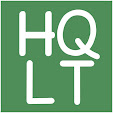Conversation
아 빠: 대니, 어떤 차를 살지 알아봤니?
Dad: Danny, did you search the cars you want to buy?
대 니: 네. 인터넷으로 좀 찾아 봤어요. 아버지! 이것 좀 보세요. 디자인이 정말 멋있죠?
Danny: Yes. I looked for it on the internet. Father! Look at this. The design is so cool, isn’t it?
아 빠: 이 차는 연비가 별로 좋지 않아. 그리고 2인승이라 불편하기도 하고…….
Dad: Fuel efficiency of this car is not very good. Also it is inconvenient because it is two-door.
대 니: 그래도 디자인이 멋있어서 사고 싶어요. 또, 저 혼자 타고 다닐 거니까 2인승이 좋아요.
Danny: But I want to buy it because the design is cool. And I like two-door because I alone will ride the car.
아 빠: 물론 디자인이나 브랜드도 중요하지. 그렇지만 차는 튼튼하고 기름 값이 적게 들어야 좋은 차야. 이 차는 어떠니?
Dad: Of course design and brand are important. However, good cars are the ones that are strong and cost less for fuel. How about this car?
대 니: 그건 너무 촌스러워요. 색깔도 마음에 안 들고요.
Danny: That is awful. I don’t like the color either.
아 빠: 이 회사 차가 튼튼하다고 하던데, 전혀 마음에 안 드니?
Dad: People say that the car from this company is strong. Do you not like this at all?
대 니: 저는 아까 본 그 차를 사고 싶어요.
Danny: I want to buy the car I picked before.
아 빠: 그럼 이번 주말에 아버지하고 중고차 시장에 가보자. 가서 직접 보고 결정하는 게 좋겠다.
Dad: Well, then, let’s go to the used car market with me this weekend. It would be better to go and see for ourselves and then decide.
어휘 학습
1. 든다: 돈이 들다, 돈을 내다, 돈을 벌다, 돈을 쓰다
2. 촌스럽다 <-> 세련되다
Notes
대니(Danny)
어떤(Which)
차를: 차(car)+-를(objective marker)
살지: 사(다)(to buy)+-ㄹ지(connective; to guess)
알아봤니?: 알아보(다)(to search)+-았-(pre-ending(past tense))+-니(ending(pain style; interrogative))?
네(yes)
인터넷으로: 인터넷(the internet)+-으로(marker(on))
찾아봤어요: 찾아보(다)(to look for)+-았-(pre-ending(past tense))+-어요(ending(polite))
아버지(Father)
이것(this)
보세요: 보(다)(to look at)+-세요(ending(imperative))
디자인이: 디자인(The design)+-이(subjective marker)
정말(so)
멋있죠?: 멋있(다)(to be cool)+-지요?(ending(for inviting confirmation or agreement))
이 차는: 이(this)+차(car)+-는(marker(exclusion))
연비가: 연비(Fuel efficiency)+-가(subjective marker)
좋지 않아: 좋(다)(to be good)+-지 않(다)(not)+-아(ending(pain style: declarative))
그리고(and also)
2인승이라: 2인승(two-door)+-이라(connective; because)
불편하기도 하고: 불편하(다)(to be inconvenient)+-기도 하(다)+-고 ending (because;←connective)
그래도(But)
멋있어서: 멋있(다)(to be cool)+-어서(connective; because)
사고 싶어요: 사(다)(to buy)+-고 싶(다)(modal aux.(to want to))+-어요(ending(polite))
또(and)
저(I)
혼자(alone)
타고: 타(다)(to ride)+-고(connective; and then)
다닐 거니까: 다니(다)+-ㄹ 거다(modal aux. (will))+-니까(connective; because)
2인승이: 2인승(two-door)+-이(subjective marker)
좋아요: 좋(다)(to like)+-아요(ending(polite))
물론(Of course)
디자인이나: 디자인(design)+-이나(marker(or))
브랜드도: 브랜드(brand)+-도(marker(also))
중요하지: 중요하(다)(to be important)+-지(ending(for insisting with speaker’s strong conviction))
그렇지만(but)
차는: 차(car)+-는(marker(exclusion))
튼튼하고: 튼튼하(다)(to be strong)+-고(connective; and)
기름 값이: 기름 값(cost for fuel)+-이(subjective marker)
적게(less)
들어야: 들(다)(to cost)+-어야(modal aux.(too need to))
좋은: 좋(다)(to be good)+-은(ending (relative clause; noun modifying))
차야: 차(cars)+-야(ending(pain style: declarative))
어떠니? 어떻(다) (ㅎ irregular(how about)) + -니(ending(pain style; interrogative))?
그건: 그것(That )+-은(marker(exclusion))
너무(too)
촌스러워요: 촌스럽(다)(to be awful)+-어요(ending(polite))
색깔도: 색깔(color)+-도(marker(also))
마음에 안 들고요: 마음에 안 들(다)(not to like)+-고요(ending(and←connective))
이 회사 차가: 이 회사 차(the car from this company)+-가(subjective marker)
튼튼하다고 하던데: 튼튼하(다)(to be strong)+-다고 하(다)(quotative(declarative))+-던(pre-ending
(retrospective marker))+-데(ending(to explain an occasion which someone saw or experienced in a retrospective way))
전혀(not at all)
마음에 안 드니?: 마음에 안 들(다)(not to like)+-니(ending(pain style; interrogative))?
저는: 저(I)+-는(marker(exclusion))
아까(before)
본: 보(다)(to pick)+-ㄴ(ending(relative clause; noun modifying))
그 차를: 그(the)+차(car)+-를(objective marker)
사고 싶어요: 사(다)(to buy)+-고 싶(다)(modal aux.(to want to))+-어요(ending(polite))
그럼(Well)
이번 주말에: 이번 주말(this weekend)+-에(marker(on))
아버지하고: 아버지(me)+-하고(marker(with))
중고차 시장에: 중고차 시장(the used car market)+-에marker(to)
가 보자: 가(다)(to go)+-아 보(다)(modal aux.(to try to do))+-자(ending(pain style: propositive))
가서: 가(다)(to go)+-아서(connective; and then)
직접(for ourselves)
보고: 보(다)(to see)+-고(connective; and then)
결정하는 게 좋겠다: 결정하(다(to decide)+-는 게 좋겠다(modal aux.(to be good to do))
To study further Korean conversations: click here









정말 감사합니다
ReplyDelete